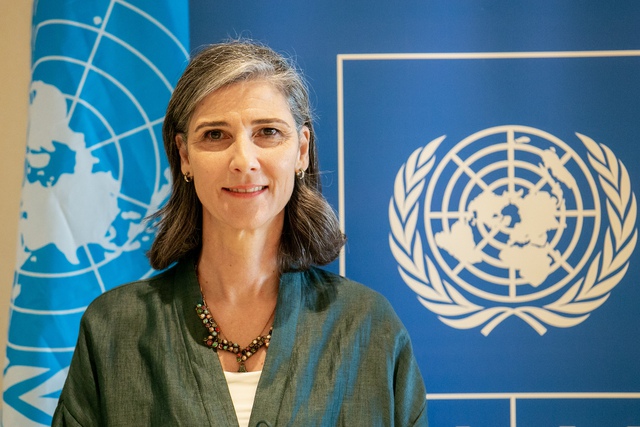Viet Nam’s human development yields positive results: UNDP Resident Representative
VGP - Human development has been the focus of Viet Nam’s development strategy for many decades, and this has yielded positive results, highlighted UNDP Resident Representative Ramla Khalidi.

UNDP Resident Representative Ramla Khalidi
As the UNDP has launched its global flagship report on human development, Ramla Khalidi shared with the VGP on Viet Nam progress in human development.
hat factors contributed to the country's human development progress?
Ms. Ramla Khalidi: Viet Nam's human development index (HDI) has improved over the years. There has been an improvement of nearly 50 percent in the HDI between 1990 and 2022, from 0.493 to 0.726.
In the 1990s when UNDP introduced the HDI, Viet Nam was at the lower end of the rankings, but has risen to the top half after making consistent progress over the past 30 years. The ranking this year for the 2022 data is 107 out of 193 countries and territories.
Viet Nam has been ranked as a high human development country for the past three years. The rankings do not change much from year to year because indicators like life expectancy and school enrolments change slowly over time.
However, Viet Nam's ranking has risen because the economy continued to grow during the pandemic unlike many other developing countries. Viet Nam recorded a high rate of growth in 2022 and this lifted the ranking. Other indicators relating to educational attainment and life expectancy have also continued to improve.
Human development has been the focus of Viet Nam's development strategy for many decades, and this has yielded positive results. We have seen sizable gains over the past decade, particularly in secondary school enrolments and health indicators.
As a high human development country, what challenges would Viet Nam face in further its progress?
Ms. Ramla Khalidi: Viet Nam ranks 91 out of 166 countries in the Gender Inequality Index, which considers inequality across three dimensions of reproductive health, empowerment and the labor market. Women and girls have achieved equality with men and boys in terms of school enrolments, and Viet Nam's female labor force participation is high.
However, in other respects gender equality is still an important issue. A persistent gender division of labor reserves more stable, highly paid jobs for men, and women still account for a small share of leadership roles in Government, the public administration and in the private sector.
The newly released Human Development report is titled "Breaking the Gridlock: Reimagining cooperation in a polarized world", could you please elaborate it and its implications for Viet Nam?
Ms. Ramla Khalidi: Polarization and lack of trust are contributing to heightened insecurity and gridlock in international cooperation.
We live in a world with complex international dependencies. No country can tackle the global challenges that we face alone; for example the impact of climate change on livelihoods, food security and human security.
Going forward, we expect to be faced with more global challenges and opportunities. The COVID-19 pandemic was an example of the kinds of threats that we will face together, and also what can be achieved through cooperation.
Human driven changes to our planet are deepening the connections between people and planet. Digital technologies are shifting economic structure and super-charging cross-border flows of information.
But instead of capitalizing on our connections, more often than not, we are failing to address shared challenges. Political polarization has emerged as a real obstacle to tackling these problems. We need to be able to work together, to find practical solutions to our problems rather than continually focus on our differences.
The Report's emphasis on reimagining cooperation in a polarized world underscores the importance of multilateral mechanisms for Viet Nam. By actively engaging in these forums and fostering inclusive dialogue, Viet Nam can play a constructive role in addressing global challenges and promoting sustainable development for its citizens and the international community alike.
Viet Nam has demonstrated a proactive and constructive approach to engaging in multilateral mechanisms, exemplified by its active participation and leadership in various regional and international forums.
The nation has been increasingly involved in broader multilateral frameworks, contributing to peacekeeping operations, humanitarian assistance, and sustainable development efforts.
Viet Nam's election as a non-permanent member of the UN Security Council for the 2020-2021 term and as the UN Human Rights Council member for the 2023-2025 term reflects its growing influence and commitment to global governance.
As we go deeper into the Anthropocene and the digital revolution races ahead, addressing our shared challenges in a polarized world calls for reimagining cooperation. The role of multilateralism, global solidarity and collective action become even more critical./.

